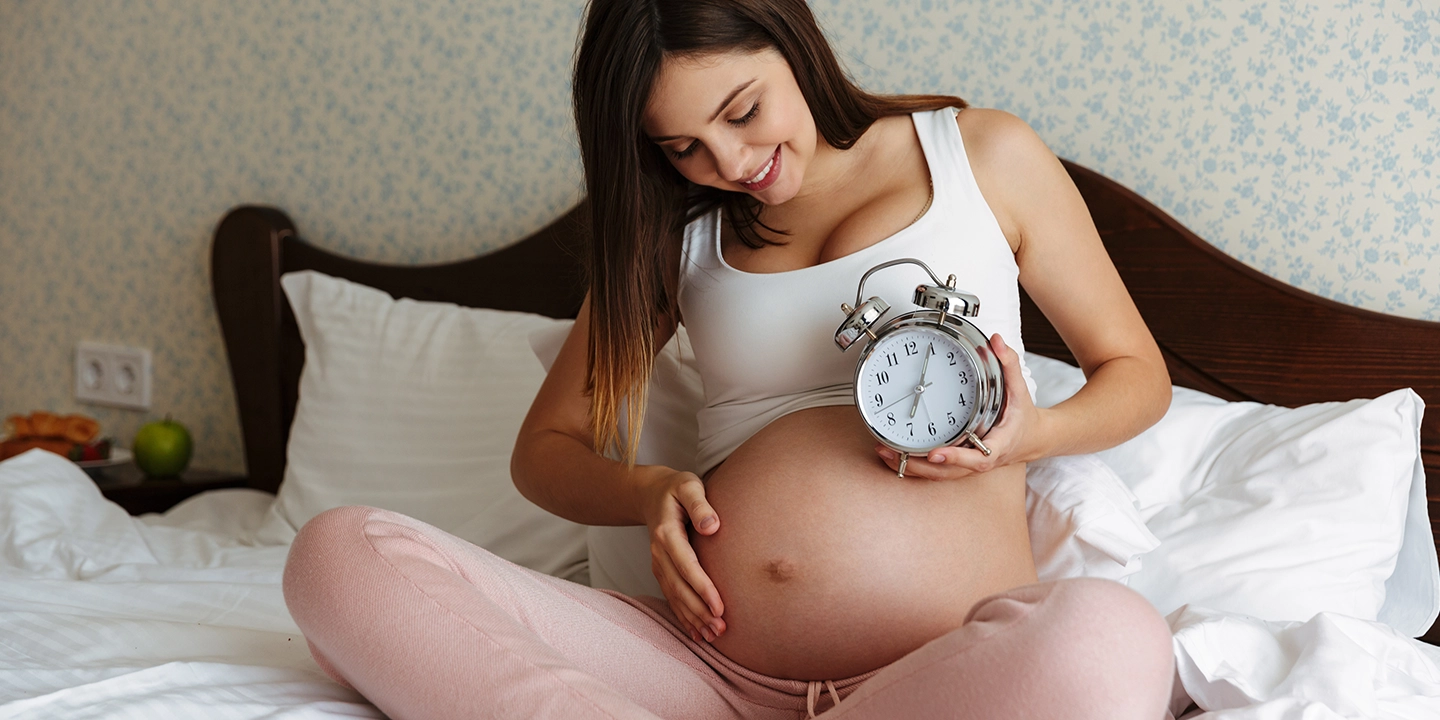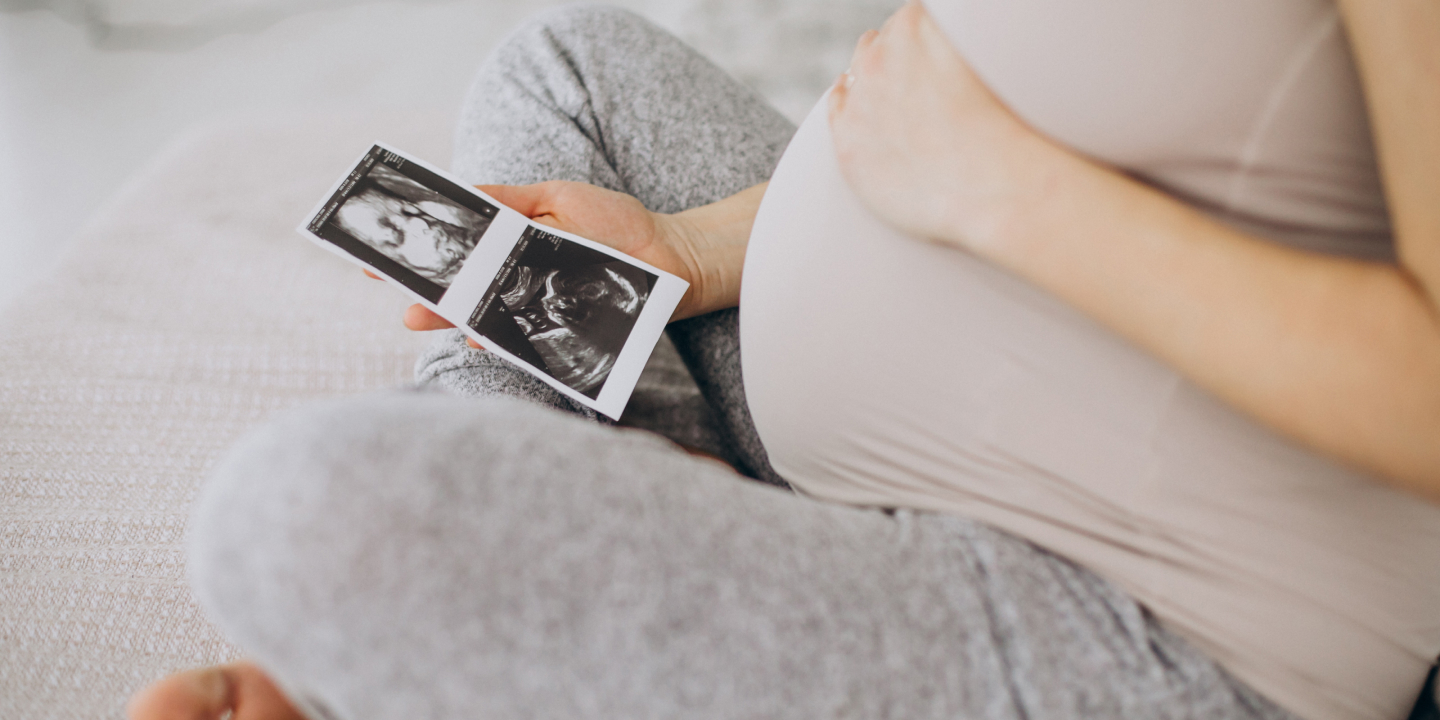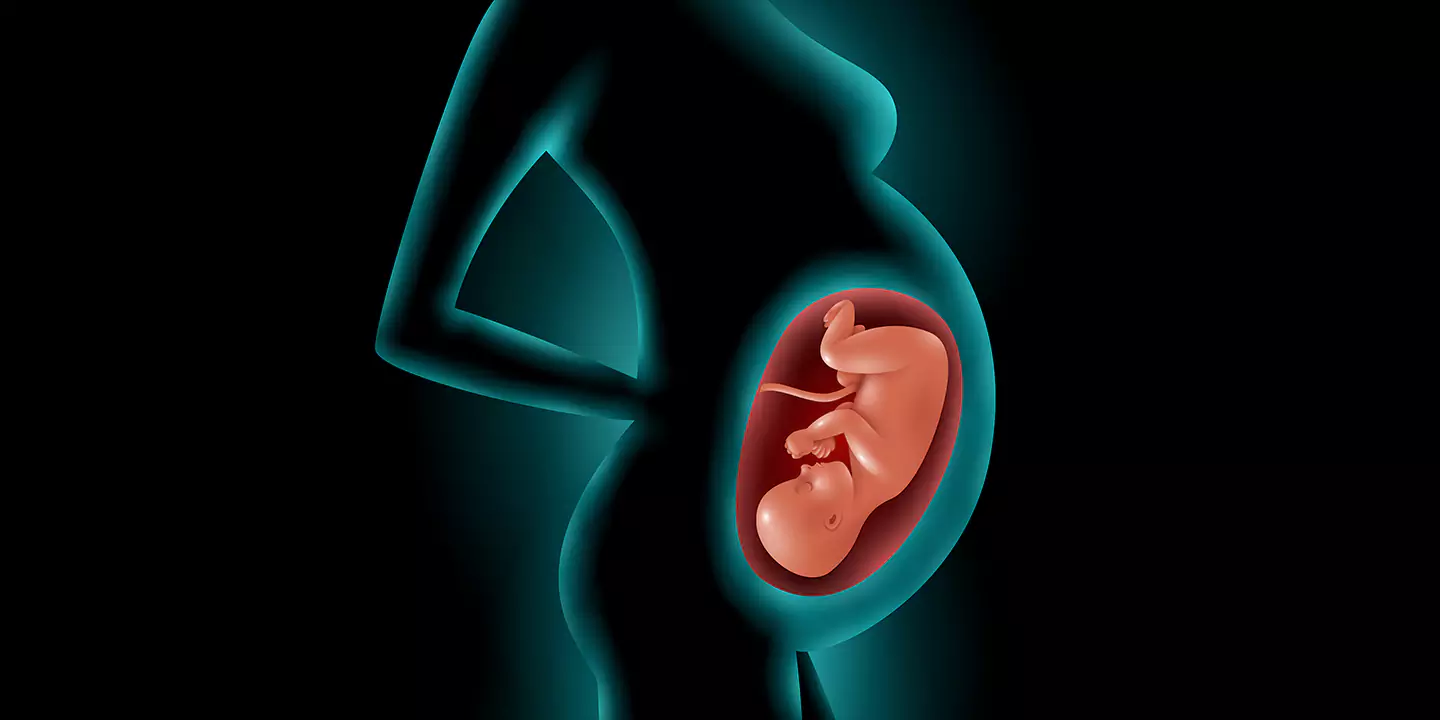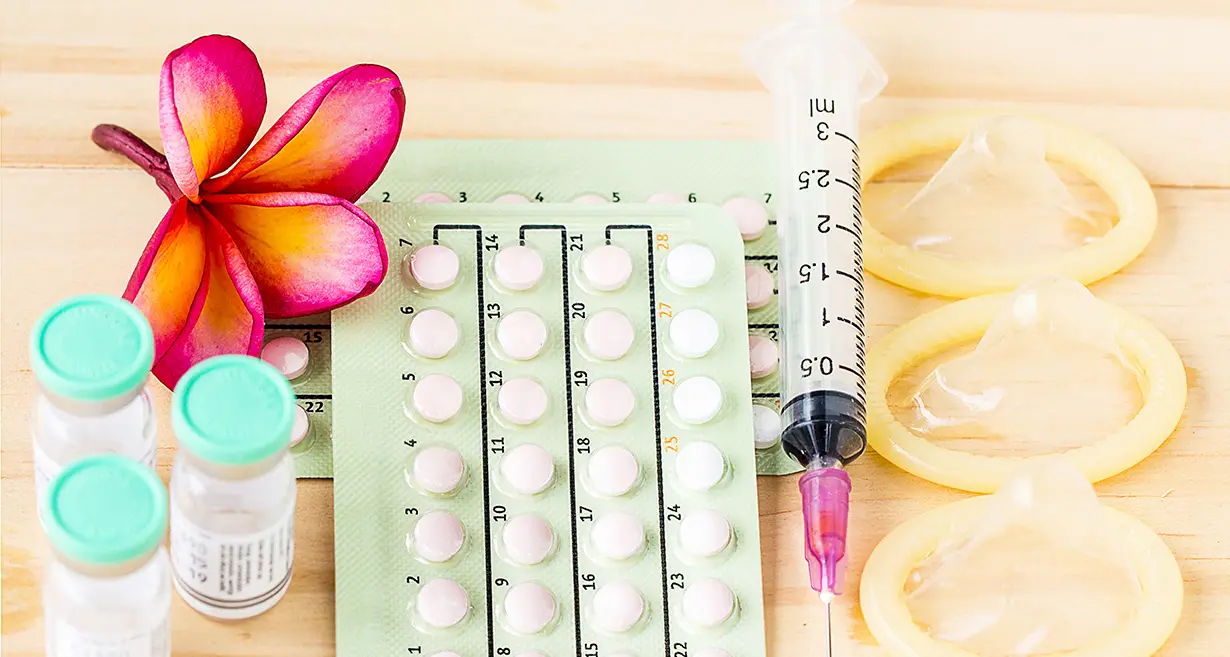
The baby may not have arrived yet, but a mother’s instincts kick in early, so it’s natural to be concerned about your child’s well-being throughout pregnancy. You and the baby are probably fine, and the true issue is learning how to relax. But things do go wrong from time to time. The key is to recognize if there are any red flags.
While some signs of pregnancy, such as exhaustion, mood changes, and bodily aches, are typical and usually not cause for concern, some pregnancy symptoms may be more problematic. Severe vomiting or headache, vaginal bleeding, contractions, and leg pain, for example, all demand talking with doctor.
According to specialists, in most circumstances, everything is alright. You must remind yourself that the great majority of pregnancies are uneventful. Pregnancy problems can still occur. That is why it is critical for every expecting parent to be aware of the warning signs of pregnancy that necessitate an immediate consultation with doctor.
Although true difficulties are uncommon, knowing what to watch for is always a good idea. Continue reading for some pregnancy warning signs that should be reported to your doctor.
In this Article
1. Severe Vomiting
The most serious issue between 4 and 20 weeks of pregnancy
Morning sickness is a common but inconvenient symptom of pregnancy. However, if you’re vomiting so much that you can’t keep liquids down or if you’re not peeing, you should be talking with doctor at once.
This can result in severe dehydration, which is harmful to both you and your baby. Extreme vomiting can also indicate hyperemesis gravidarum, a type of severe morning sickness that can last the duration of your pregnancy.
You can also book an online doctor consultation if you haven’t been able to eat for two days, suspect you have food poisoning, or if your vomiting is accompanied by a high temperature. You may need to go to the hospital in certain circumstances for intravenous (IV) fluids.
Related: 10 Things You Should Avoid After Giving Birth
2. Bleeding in the Vaginal Canal
The concern throughout the pregnancy
Vaginal bleeding during pregnancy can be caused by a variety of factors, including miscarriage symptoms. Having said that, bleeding is fairly common, especially in the first trimester.
Roughly 25% of women suffer some spotting or more bleeding during the first 13 weeks of pregnancy; the vast majority of these women go on to have perfectly healthy kids.
Bleeding in the first trimester, especially if it is heavy and accompanied by cramping, can be miscarriage symptoms. However, implantation of the egg in the uterine lining is another typical cause of very early pregnancy.
Benign cervical polyps, which are pretty common whether or not you’re pregnant, could potentially be to fault. Cervical bleeding, which can occur after sexual intercourse and even cervical exams, is another possible cause.
Bleeding during pregnancy can be particularly concerning in the second and third trimesters.
It could happen if the mucus plug that closes the cervix is lost during early labor. It could also indicate that you have a rip in your placenta or another issue that should be identified by ultrasonography. Book a consultation with doctor if you notice any bleeding during your pregnancy.
3. Severe Headache
One of the most serious concerns after 20 weeks of pregnancy
It’s probably not a huge deal if you suffer periodic headaches while pregnant. However, if you have a severe and chronic headache, especially if it is accompanied by fainting, dizziness, and/or blurred vision, you should consult your doctor.
If you’re feeling faint, find a comfortable place to sit and have someone sit with you while you talk on the phone or you can book an online doctor consultation. Try drinking some water and laying on your left side (dehydration is frequently the source of these symptoms).
Severe headaches in the second and third trimesters may indicate preeclampsia, a high blood pressure disease. This disorder lowers the blood supply to the baby and might lead to complications for the pregnant woman. Those with a family or personal history of preeclampsia, high blood pressure, or diabetes are most at risk. Obesity, as well as carrying more than one baby, raises the risk of preeclampsia.
Some signs of pregnancy preeclampsia, other than frequent or unrelenting headaches, include:
Pain in the abdomen, particularly on the right side
Vision blur or seeing light flashes or dots
Swelling of the feet, hands, or face in excess
Flu-like achiness but no runny nose, or painful throat
Gaining weight quickly (i.e., 10 pounds in 4 days)
4. Severe Abdominal Pain
The most serious issue during the first 12 weeks and the last few weeks of pregnancy
Your doctor will want to rule out an ectopic pregnancy (in which the egg has implanted itself outside the uterus, usually in a fallopian tube) if you’re less than 12 weeks pregnant, doubled over with strong cramping on one side of your stomach, and haven’t had an ultrasound.
In late pregnancy, however, abdominal pain is normally normal. Unless the discomfort becomes unbearable or is coupled with bleeding, it is most likely just regular uterine growth, round ligament stretching, or gas. However, if you experience severe or recurring discomfort later in your pregnancy, you should be talking with doctor because it could be anything from contractions to appendicitis.
5. High Fever or Chills
The most serious issue in the first few weeks of pregnancy
Running a fever is never fun, but it might pose an additional health risk to your baby during pregnancy. Your baby’s growth and development are dependent on your body maintaining a consistent and healthy temperature (around 98.6 degrees to 103 degrees Fahrenheit). Disruption of this temperature early in pregnancy can be miscarriage symptoms and can wreak havoc on your system. A higher temperature later in your pregnancy may not harm your baby as much, but it could be an indication of infection or another problem that you may discuss in an online doctor consultation.
6. Gush of Watery Discharge
The most serious issue between 24 and 36 weeks of pregnancy
A fluid discharge may indicate that your water has burst if you’re nearing the end of your pregnancy. Normal vaginal discharge, which can increase in volume during pregnancy, could potentially be the cause. Or you may have leaked a little pee, which is pretty usual as your due date approaches.
However, if you encounter a rapid gush of fluids before 37 weeks, contact your doctor immediately. It could be an indication that your amniotic sac has ruptured and you’re about to go into premature labor. But don’t go to the hospital expecting the worse.
Women mistakenly believe that their water has broken too soon, while in fact, the baby may have simply kicked them hard in the bladder, causing them to lose some pee.
7. Contractions
he most serious issue between 24 and 36 weeks of pregnancy
Another indicator of preterm labor is contractions. Pick up the phone if you suddenly feel them between 24 and 36 weeks pregnant. However, it is critical to distinguish between labor contractions and the harmless Braxton Hicks contractions that are exceedingly prevalent in late pregnancy and are referred regarded as “practice” contractions and “fake labor” for good reason. They are your body’s method of getting ready for genuine labor, but they do not signify that childbirth is imminent.
Contractions occur at regular intervals, grow in frequency and severity, and do not cease when your posture or activity changes. Braxton Hicks contractions occur without a predetermined timetable, do not increase in frequency or intensity with time, and frequently stop if you change your body’s posture or what you’re doing. While they are unpleasant, they are not as intense as genuine labor contractions.
“If rest and hydration make the contractions go away, they are not actual labor contractions,” according to the American College of Obstetricians and Gynecologists. If you are unsure or have any additional concerns about your symptoms, consultation with doctor is immediately important.
8. Painful Urination
The most serious issue between 6 and 24 weeks of pregnancy
Although frequent urination is a common pregnant issue, burning, and pain when emptying your bladder are not. These are symptoms of a bladder infection or a urinary tract infection (UTI), which are frequent and especially unpleasant during pregnancy.
Treatment of the infection can assist to avoid problems (which can include preterm labor and low birth weight babies). A UTI, if left untreated for several days or weeks, can lead to a kidney infection, which has been related to preterm labor. So, while you don’t need to be talking with doctor right away, make an appointment soon if your symptoms don’t go away.
9. Less Fetal Movement
The most serious concern is in the third trimester.
A lack of fetal activity may signal a pregnancy concern and should always be reported to a doctor. Later in pregnancy, usually around week 28, you’ll start tracking your baby’s movements with fetal kick counts.
Most doctors urge that you check in on your growing baby several times every day and look for 10 movements within 10 minutes. If you try a count and don’t feel any movement, drink a glass of fruit juice (the natural sugars will raise your baby’s blood sugar and get them moving), then rest on your left side in a quiet area for 30 minutes.
If you don’t feel any movement after a second try, or if two hours pass without 10 motions, contact your doctor. It’s usually nothing, and the baby is just unusually still. However, your doctor will most likely do a stress test or an ultrasound to ensure that there are no abnormalities.
A prolonged halt in fetal activity could indicate oligohydramnios or a lack of amniotic fluid. 10% of pregnancies are affected by low amniotic fluid. Often, a pregnant woman is merely dehydrated, and drinking plenty of water helps remedy the situation.
Oligohydramnios can also be caused by an amniotic sac rupture, a placental malfunction, or, in rare cases, a problem with the baby’s kidneys or bladder (much of the amniotic fluid is the baby’s urine). In such circumstances, bed rest can help to reduce fluid loss and lengthen your pregnancy.
If you have this condition after the 38th week of pregnancy, labor may be induced after talking with doctor, to reduce the risk of the cord becoming constricted and cutting off blood flow to the baby. The amniotic fluid protects the umbilical cord by acting as a cushion, preventing the newborn from crimping or crushing its lifeline.
Related: : 11 Tips for a Safe, Healthy Pregnancy
10. Pain in Legs
Throughout the pregnancy, there can be a concern.
Pregnancy increases a person’s chance of blood clots in the deep veins of the legs, a condition known as deep vein thrombosis (DVT). Hormonal changes make your blood more likely to clot, and the increasing uterus’ pressure on your veins might obstruct circulation, causing blood to pool in your legs and feet.
DVT may be difficult to identify from normal pregnant leg cramps. However, reliable warning signs of pregnancy include the symptoms occurring in only one leg and the area being red, uncomfortably swollen, and warm to the touch.
Unfortunately, DVT can be “silent.” In such circumstances, the first symptom could be pulmonary embolism, which occurs when a fragment of the clot breaks off and travels to the lung. If you have shortness of breath, chest pain, or a racing heart, call your doctor immediately.
Pregnant women who are older, overweight, or genetically susceptible to clotting are more likely to develop DVT, as are those who are placed on bed rest. If you are ordered to be immobile due to another pregnancy issue, your doctor may advise you to take an anticoagulant medicine such as heparin or wear special compression stockings to enhance circulation.
Staying active and hydrated may help prevent clots in otherwise healthy persons.
It’s particularly critical to get back on your feet in the hours and days following birth when the risk of DVT remains high. Movement improves circulation and reduces the likelihood of developing DVT.
Frequently Asked Questions
Itching all over your body, especially your hands and feet, can be a major source of concern throughout the third trimester. While minor itching is common, excessive scratching may indicate pregnant cholestasis, a liver illness that should be watched by a specialist. This ailment is usually innocuous and can be treated with anti-itch cream. However, in extreme circumstances, it might result in preterm birth, making it an important pregnancy symptom to pay attention to.
Some swelling is usual during pregnancy, especially in the later months. However, certain types of swelling can suggest preeclampsia:
Your face has chronic, significant swelling.
puffiness around your eyes that is continuous and severe
significant and unexpected swelling in your ankles or feet, especially in the morning
Swelling, soreness, or tenderness in one leg or one arm is also alarming, because it may be an indication of deep vein thrombosis (a clot in your vein). The affected limb may also be red, puffy, and heated. This can happen at any point throughout pregnancy or up to six weeks after birth. Deep vein thrombosis can spread and cause pulmonary embolism or stroke.
If you experience any of the symptoms listed above, consultation with doctor is imperative. Call if you have a gut feeling that something isn’t right, even if you’re not sure. It is preferable to be comforted rather than overlook a potential difficulty. It’s also a good idea to discuss any symptoms you’d like to be alerted to in an online doctor consultation. Depending on your specific condition, they may advise you to be on alert for specific symptoms. (For example, if your blood pressure is rising, they may want you to be extra vigilant for signs of preeclampsia.
Conclusion
During pregnancy, your body changes so quickly that it’s difficult to tell whether a new ache, pain, or other symptom is normal or whether you should call your doctor or go to the emergency department. It’s prudent to be vigilant and watch for new symptoms during pregnancy. Keep in mind that these are only a few of the pregnancy symptoms you should never overlook. If you have any doubts or simply don’t feel right, you can always book an online doctor consultation or visit Queen’s Gynecology, Delhi. Queen’s Gynecology is a team of the best laparoscopic gynecologists with experience of over 13 years in different subspecialties of gynecology. The skilled and experienced team of OB-GYNs at Queen’s Gynecology will put all your worries at ease and provide timely treatment if a problem does arise. Queen’s Gynecology believes in delivering the most recommended treatments to the female body with the utmost sensitivity and humane touch.



































































































































































































